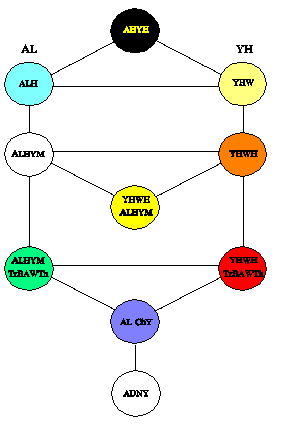
 The Greek term 'gnosis' is etymologically connected with our word 'know', as the 'gno-' and 'kno-' spellings suggest. And for the Classical and Hellenic Greeks the term 'gnosis', like our 'knowledge', meant a rational comprehension, the result of our commonplace reasoning ability. For the Gnositcs of Hellenistic Greece, however, the term 'gnosis' had taken on a special meaning, one in respect to the previously discussed Unknowable God. For them, there existed a different kind of knowledge, something innate and beyond rational understanding, that allowed the Knowing Ones to see the "truth" about the World, the Creator, and--most importantly, however contradictory --about the Unknowable God. For the Gnosis, the higher knowledge beyond rational knowledge, is Gnosis of the Unknowable God. And this Gnosis is either the goal or the way to the goal--the redemption of the Alien from the dark realm of the World. For the Qabbalists of the Book Bahir, much later, it was the Pure Thought, untainted by any intentionality, free of any reference to an object--the Pure Subject, which ultimately communes with the Divine Thought. The Greek term 'gnosis' is etymologically connected with our word 'know', as the 'gno-' and 'kno-' spellings suggest. And for the Classical and Hellenic Greeks the term 'gnosis', like our 'knowledge', meant a rational comprehension, the result of our commonplace reasoning ability. For the Gnositcs of Hellenistic Greece, however, the term 'gnosis' had taken on a special meaning, one in respect to the previously discussed Unknowable God. For them, there existed a different kind of knowledge, something innate and beyond rational understanding, that allowed the Knowing Ones to see the "truth" about the World, the Creator, and--most importantly, however contradictory --about the Unknowable God. For the Gnosis, the higher knowledge beyond rational knowledge, is Gnosis of the Unknowable God. And this Gnosis is either the goal or the way to the goal--the redemption of the Alien from the dark realm of the World. For the Qabbalists of the Book Bahir, much later, it was the Pure Thought, untainted by any intentionality, free of any reference to an object--the Pure Subject, which ultimately communes with the Divine Thought.
|

